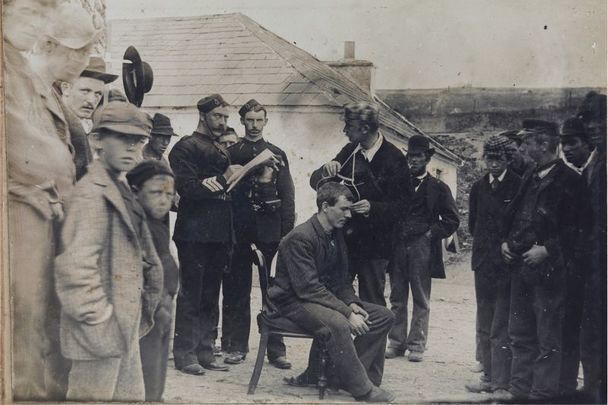The remains of 13 people that were taken from Inishbofin, off County Galway, in the 19th century have been returned to the island.
Anthropologist Alfred Haddon and his colleague Andrew Dixon removed 13 skulls from the island on July 16, 1890, and took them to Trinity College Dublin, where they remained on display or in storage over the next 133 years.
Haddon and Dixon sketched the skulls in St. Colman's Monastery on the island - considered sacred by locals - and then stole them in the middle of the night. The skulls are believed to date back to the 16th and 17th centuries, with the oldest dating back to around 1550.
Following a lengthy campaign to secure the skulls' return to Inishbofin, Trinity set up a group to determine whether the skulls should be handed back. The group was also tasked with examining whether Trinity's library - named after Irish slave owner George Berkeley - should be renamed.
The skulls were given to a delegation of islanders last Wednesday before being placed in a coffin and transported to Galway.
They were then taken to Inishbofin on Saturday evening and allowed to repose at St. Colman's Monastery overnight.
The skulls were reinterred following a funeral mass on Sunday afternoon, exactly 133 years since they were stolen.
Islanders prepared a burial plot in the shadow of the monastery for the skulls to be buried in, located meters from the alcove where they were stolen from.
Islander Marie Coyne, who was heavily involved in the campaign to have the skulls returned, told RTÉ News that it was wrong to keep these items on display in Trinity College.
Human remains, which were stolen from Inishbofin more than 130 years ago, are being returned to island residents today. The skulls of 13 people were taken from the grounds of St. Colman’s Monastery in 1890 | https://t.co/0XXqcirn8U pic.twitter.com/URbyJbaHSH
— RTÉ News (@rtenews) July 12, 2023
"To steal human remains was wrong to start with. This is our island. They're our people, and they shouldn't be kept in a cabinet, you know, in Trinity, they were resting here and should have been left here, but they didn't get that chance. Now, they deserve to get that chance," Coyne told RTÉ News.
In February, Trinity said the context for keeping the skulls for the last 133 years was an interest in fields including craniometry (measurement of the cranium) and anthropometry (scientific measurement of individuals).
Speaking in February, Trinity Provost Dr. Linda Doyle apologized for keeping the skulls.
"I am sorry for the upset that was caused by our retaining of these remains and I thank the Inishbofin community for their advocacy and engagement with us on this issue," Doyle said.




Comments